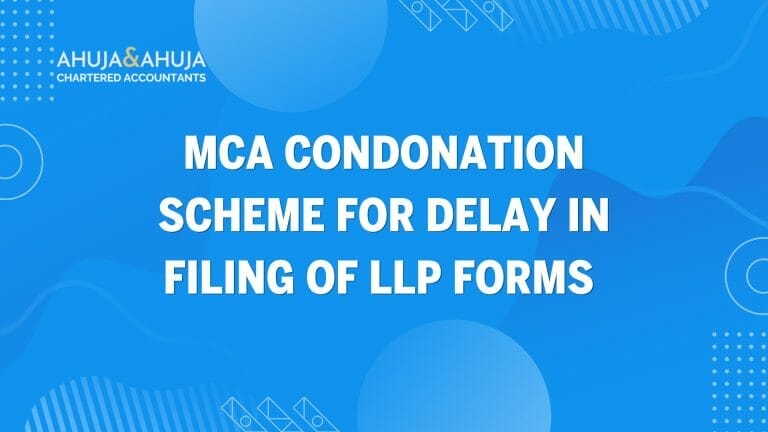Conversion of a Private Limited Company into an LLP: A Comprehensive Guide
The business landscape of India is teeming with companies of various structures – from sole proprietorships and private limited companies to public limited companies and limited liability partnerships (LLPs). Each type offers its unique bouquet of benefits, making the choice of structure crucial per your specific needs and ambitions (company-registration-procedure-india).
Increasingly, many private limited companies are exploring the transition into a Limited Liability Partnership (LLP) to capitalize on the flexibility offered by this corporate structure. However, this transition isn’t merely about changing the company’s name – it necessitates the transformation of every aspect, from the transfer of assets and liabilities to the legal framework within which the entity exists.
Understanding the Conversion and its Legal Framework
Converting a Private Limited Company to an LLP is a comprehensive, well-regulated process governed by the Limited Liability Partnership Act of 2008, with specific reference to Section 56, Section 58, and Schedule III of the Act. The conversion process in this context involves the transition of assets, liabilities, rights, privileges, obligations, and interests from the private company to the LLP, not just a mere name change.
The regulatory pathway for a private limited company to LLP conversion was established to ensure a smooth, legally compliant transition. In the Indian corporate setup, the Board of Directors plays a crucial role in the company’s decision-making (all-about-director-identification-number-din). Consequently, the decision to convert a private limited company to an LLP predominantly arises in a business environment requiring more organizational flexibility and less stringent regulatory mandates.
The Limited Liability Partnership Act doesn’t merely set out the eligibility criteria and the conversion procedure but also highlights the post-conversion compliance that the new LLP must adhere to (compliance-list-company). Throughout their lifecycle, businesses are required to respect various legal boundaries (services/business-setup-services/company-formation-india).
This article intends to provide a detailed exploration of this process, taking you through the eligibility criteria, necessary procedural steps, post-conversion compliance norms, and associated financial implications, including applicable income tax provisions.
Stay tuned for the second part of this article where we will delve deep into the eligibility criteria for conversion and process involved for private companies to manifest into Limited Liability Partnerships.
Remember to always consult with an experienced professional to understand the legal and financial implications of such decisions. For any support with company registrations, annual filings, or exploring different business structures, you can always reach out to our team (services/company-llp-services/company-annual-return-filing, services/income-tax/corporate-tax-services, company-registration-gurgaon).
Elucidating Eligibility Criteria and Legal Framework for Conversion
Eligibility for Conversion from Private Limited Company to LLP
Transitioning from a private limited company to a Limited Liability Partnership involves a nuanced understanding of specific legalities outlined in the Limited Liability Partnership Act of 2008. Here we explore the eligibility criteria that a company must meet to qualify for conversion, as laid down in Sections 56 and 58, alongside Schedule III of the Act.
Eligible Companies:
- No Active Security Interest: At the forefront of the eligibility criteria is the stipulation that at the time of applying for conversion, the company should not have any active security interest (including charges) against its assets. This is crucial to ensure that the conversion process doesn’t impinge on rights of the creditors or impact the company’s liabilities (company-registration-procedure-india).
- Shareholders as Partners: Only the shareholders of the company at the time of conversion should become partners in the LLP. This criterion aims to ensure a smooth transition by maintaining ownership structures while allowing for the operational flexibility offered by the LLP framework.
Sections 56 and 58, read in conjunction with Schedule III, establish that conversion isn’t a mere procedural change but a transition into a fundamentally different operational and legal entity, making the compliance to these eligibility criteria non-negotiable.
Navigating the Conversion: A Step-by-Step Process
Outlined within the Limited Liability Partnership Act of 2008 and its corresponding Rules, the conversion process from a Private Limited Company to an LLP is detailed and precise, and companies seeking conversion must adhere to these steps systematically.
- Name Reservation: The conversion journey begins with the reservation of a name for the LLP. It’s pivotal to ensure that the name chosen does not infringe on existing trademarks or business names, maintaining the integrity and reputation of the business (services/business-setup-services/company-formation-india).
- Filing of Conversion Application: Following name reservation, the company must file the conversion application, detailing the decision to convert, the consensus on the conversion terms among shareholders, and the proposed structure of the LLP (company-registration-gurgaon).
- Attachments and Documents: Integral to the application are various documents, including but not limited to financial statements, details of secured creditors (if any), and an in-principle approval from all shareholders consenting to the conversion.
- Registrar’s Approval: Post submission, the application undergoes scrutiny by the Registrar of Companies. Upon satisfaction, the Registrar issues a certification of conversion, officially marking the company’s transition to an LLP (services/company-llp-services/company-annual-return-filing).
Post-Conversion Compliance: Aligning with the New Legal Framework
With conversion, the erstwhile private limited company steps into a new legal identity that offers it operational flexibility but comes with its set of compliance requirements. Companies are advised to understand these requirements detailed in Schedule III and the Limited Liability Partnership Act to ensure the seamless transition and operation of the new LLP.
Stay tuned as we explore the financial implications, including income tax provisions, to ensure a tax-efficient transition in the upcoming sections. Being well-informed and prepared can help navigate this complex process more smoothly.
For further details or services related to company conversion, tax services, or annual compliance filings, visit our dedicated services page (services/income-tax/corporate-tax-services).
Financial Implications and Navigating Income Tax Regulations in Conversion
The transformation of a Private Limited Company into a Limited Liability Partnership (LLP) is not only a procedural or structural change but also carries significant financial implications, especially in the realm of taxation. A meticulous understanding of these tax provisions is essential for ensuring a tax-efficient conversion.
Income Tax Provisions Applicable to Conversion
Under the Income Tax Act, the conversion of a company into an LLP is treated with specific care to avoid undue tax burdens, provided certain conditions are satisfied.
- Capital Gains Tax Implications: Section 47 of the Income Tax Act articulates that no gain or loss shall be recognized if a private limited company converts into an LLP. This exemption, however, is conditional upon fulfilling criteria mentioned in Section 47(xiiib), ensuring the continuity of business under the newly formed LLP without immediate tax repercussions.
Conditions for Tax Neutrality: For the conversion to enjoy exemption from the levy of capital gains tax, it is imperative that:
- All assets and liabilities of the company at the time of conversion become assets and liabilities of the LLP.
- All the shareholders of the company become partners in the LLP, and their capital contribution and profit-sharing ratio in the LLP are in the same proportion as their shareholding in the company immediately before conversion.
- The shareholders of the company do not receive any consideration or benefit, other than the share in the profit and capital contribution in the LLP, indicating a straight swap of interests.
- The aggregate of the profit-sharing ratio of the shareholders of the company in the LLP is not less than 50% at any time during the period of five years from the date of conversion.
- The total sales, turnover, or gross receipts in the business of the company does not exceed sixty lakh rupees in any of the three preceding years.
- Non-Compliance and Repercussions: Importantly, Section 47A provides a safeguard mechanism, stipulating that should any of the conditions outlined for tax neutrality not be complied with, the benefits previously availed under Section 47 would be revoked. This would lead to the re-assessment of the capital gains that were exempted at the time of conversion and taxed accordingly.
Navigating the Conversion for Tax Efficiency
For companies considering conversion to an LLP, a strategic approach towards satisfying the conditions for tax exemptions is crucial. This often involves meticulous planning and restructuring pre-conversion to align with the requirements laid out in the Income Tax Act.
It is equally important for companies to consult with tax professionals who can provide bespoke advice tailored to the company’s specific situation, ensuring that the conversion does not inadvertently lead to a significant tax liability (services/income-tax/corporate-tax-services).
Conclusion
The conversion of a Private Limited Company into a Limited Liability Partnership is a complex process that requires careful consideration of legal, procedural, and financial aspects. Compliance with the Limited Liability Partnership Act of 2008 and adherence to the Income Tax Act provisions are crucial towards achieving a seamless and tax-efficient transition.
While the potential benefits, such as operational flexibility and less stringent compliance requirements, make the conversion appealing for many businesses, the importance of thorough due diligence and expert consultation cannot be overstated.
For support and guidance through every step of this intricate process, from the strategic planning phase to the final conversion and post-conversion compliance, our suite of business setup and tax services are designed to navigate your business through these legal terrains efficiently.
Disclaimer
The materials provided herein are solely for educational and informational purposes. No attorney/professional-client relationship is created when you access or use the site or the materials. The information presented on this site does not constitute legal or professional advice and should not be relied upon for such purposes or used as a substitute for professional or legal advice.







